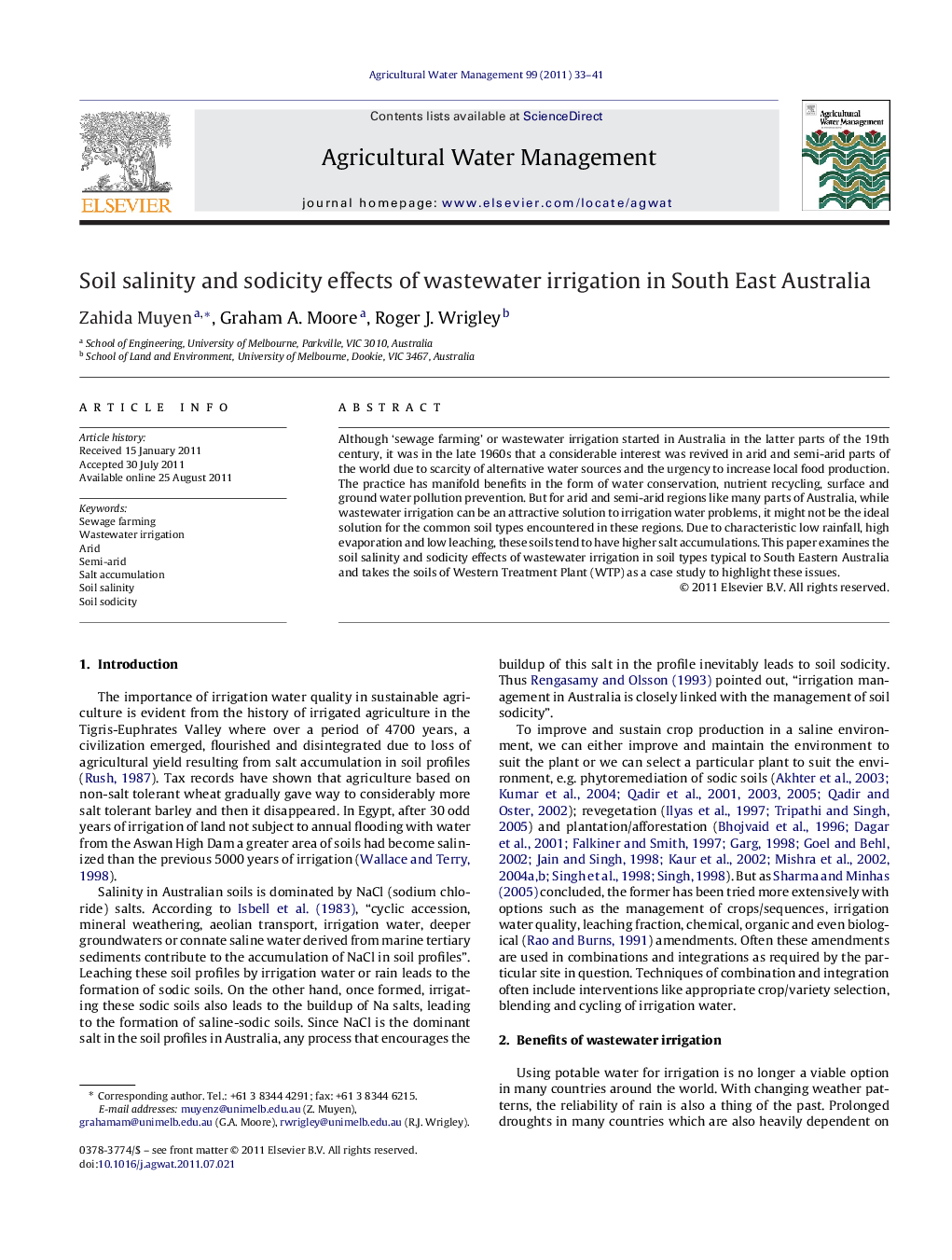| کد مقاله | کد نشریه | سال انتشار | مقاله انگلیسی | نسخه تمام متن |
|---|---|---|---|---|
| 4479280 | 1316434 | 2011 | 9 صفحه PDF | دانلود رایگان |

Although ‘sewage farming’ or wastewater irrigation started in Australia in the latter parts of the 19th century, it was in the late 1960s that a considerable interest was revived in arid and semi-arid parts of the world due to scarcity of alternative water sources and the urgency to increase local food production. The practice has manifold benefits in the form of water conservation, nutrient recycling, surface and ground water pollution prevention. But for arid and semi-arid regions like many parts of Australia, while wastewater irrigation can be an attractive solution to irrigation water problems, it might not be the ideal solution for the common soil types encountered in these regions. Due to characteristic low rainfall, high evaporation and low leaching, these soils tend to have higher salt accumulations. This paper examines the soil salinity and sodicity effects of wastewater irrigation in soil types typical to South Eastern Australia and takes the soils of Western Treatment Plant (WTP) as a case study to highlight these issues.
► In this study we look at sources and volumes of irrigation water in Australia.
► We review the impact of wastewater irrigation on typical Australian soils.
► The Western Treatment Plant (WTP) soils are unique due to their history.
► We discuss the WTP soils in the context of soil sodicity and salinity.
► We highlight the necessary considerations required in deciding wastewater irrigation.
Journal: Agricultural Water Management - Volume 99, Issue 1, November 2011, Pages 33–41